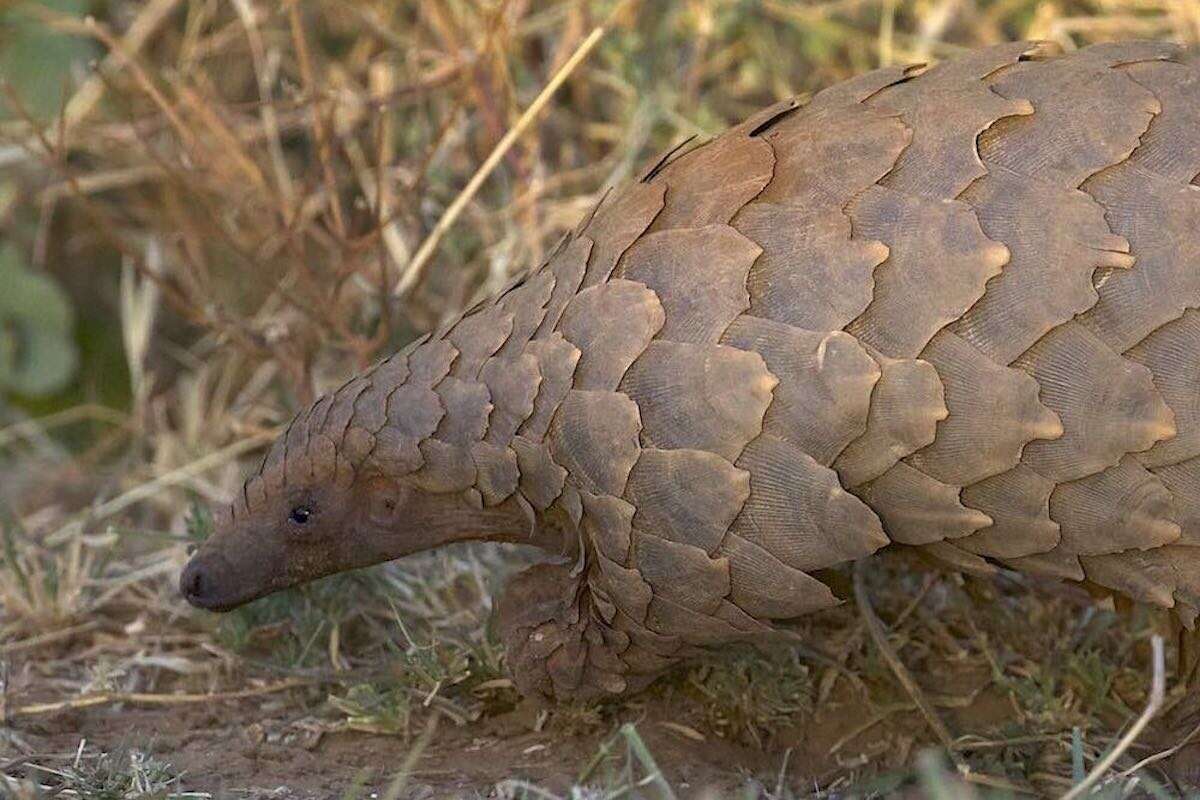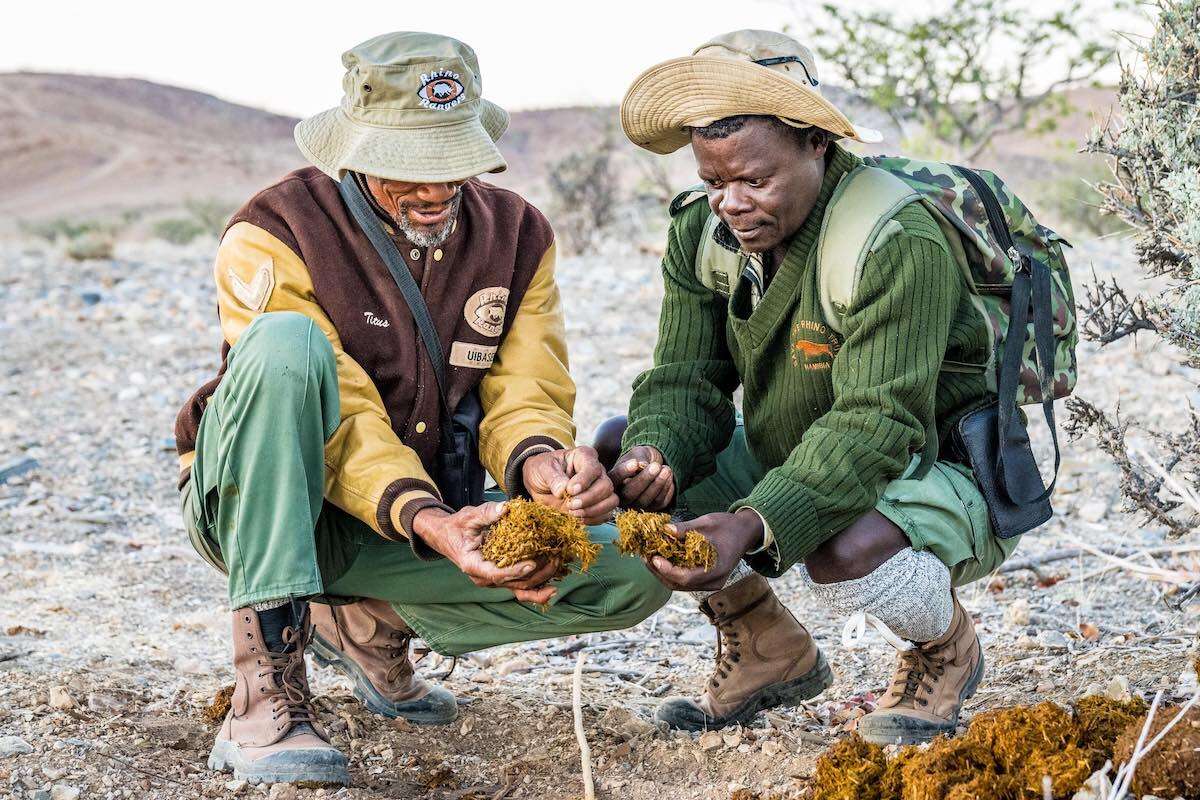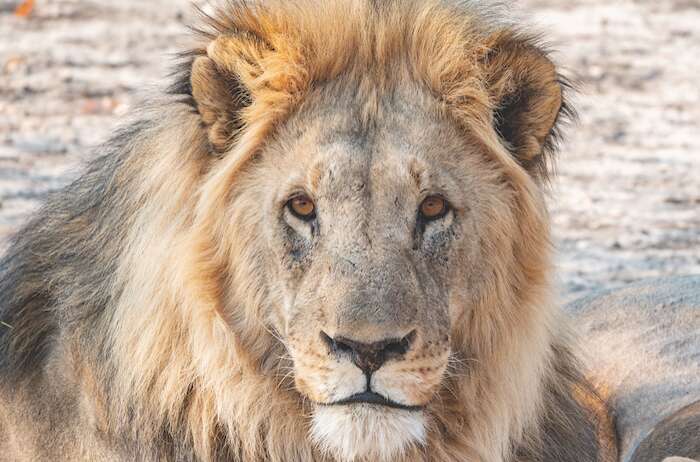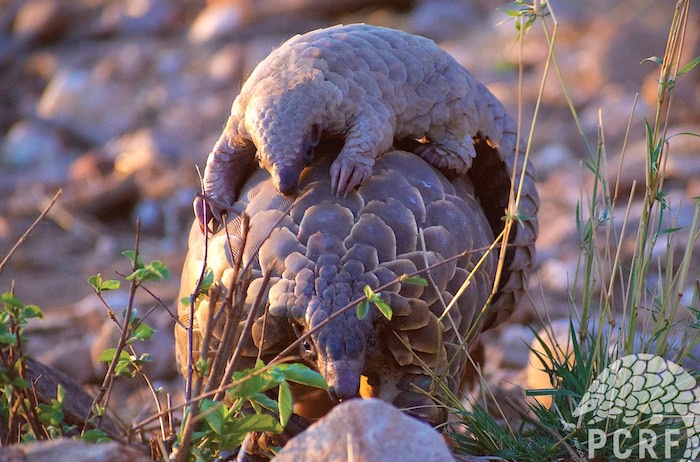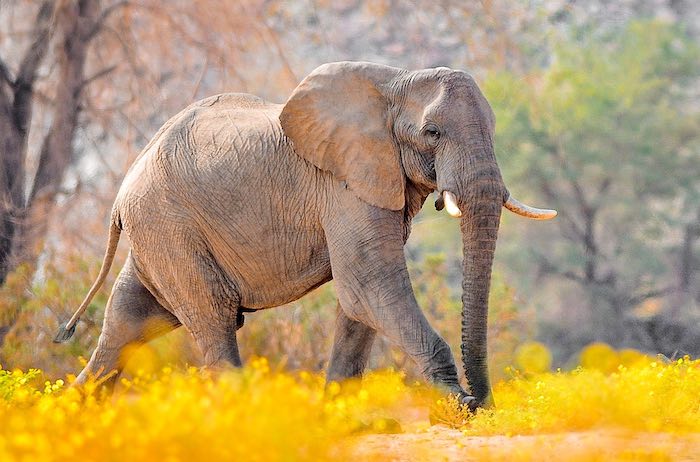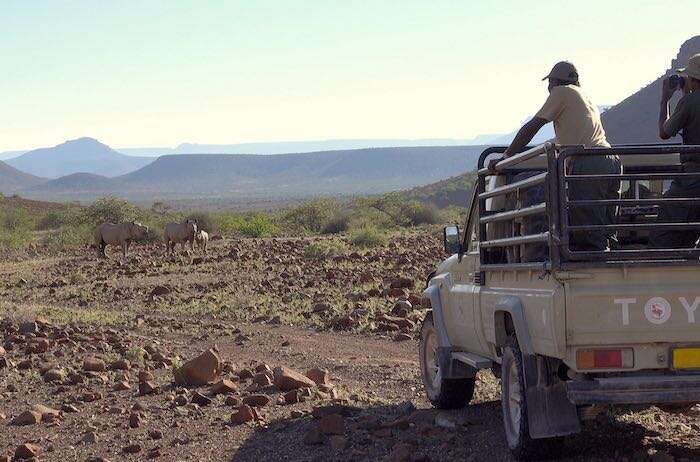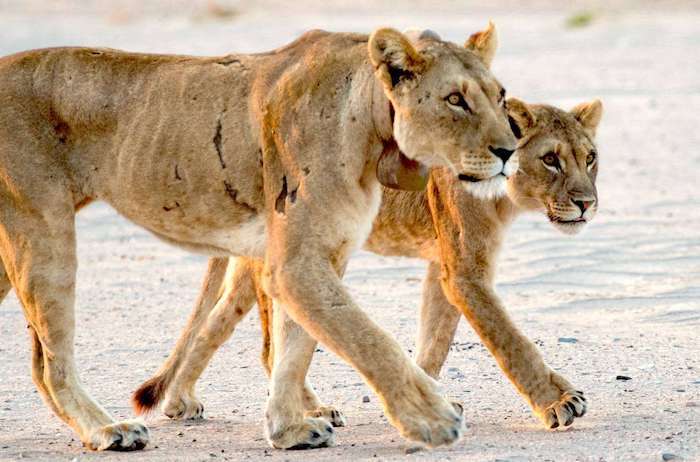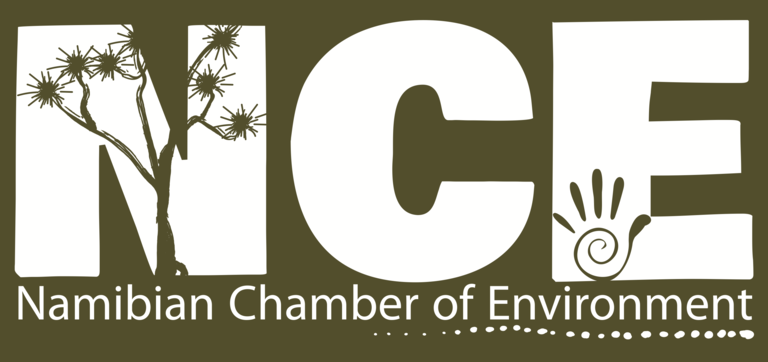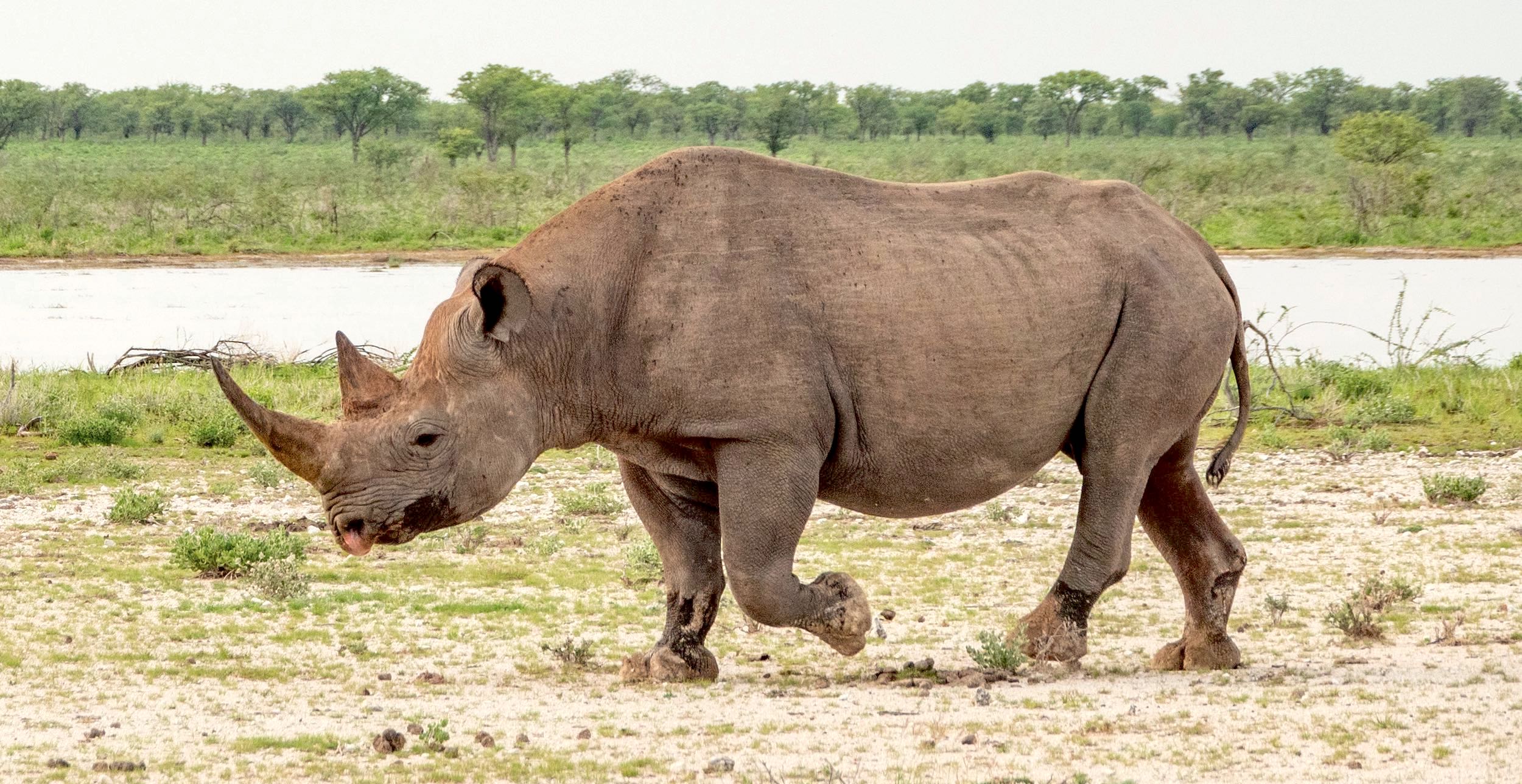
Signs of success
An overview of the Combatting Wildlife Crime Project
By Ginger Mauney and Samson Mulonga
8th August 2020
The illegal trade in wildlife is estimated to be worth up to US$ 20 billion (N$ 300 billion) per year. Shocking, yes, but wildlife crime statistics are even more harrowing when they are measured in lives:
- 20,000 African elephants are killed each year – an average of 55 a day.
- 9,000 rhinos poached across Africa over the last decade.
- 300 pangolins are poached every day, making it the most illegally trafficked mammal in the world.
- 269 rangers were killed across Africa between 2012 and 2018, the majority of them by poachers.
Wildlife crime is driven by demand from markets primarily in Asia, and the perpetrators are poachers, middle-men, and criminal syndicates operating from countries around the world. This illegal trade has negative impacts on Namibia’s economy, on local, regional and international security, as well as the heritage and natural resources that we wish to pass on to our children for their future use and enjoyment. This is theft on a massive scale, and the criminals are stealing from each and every one of us.
Recognising the urgent need to stop the plundering of Africa’s natural resources, the United States Agency for International Development (USAID) began funding the 5-year, 5-country Combatting Wildlife Crime Project (CWCP) in 2017. The five countries covered by the project are Namibia, Botswana, Angola, Zambia and Zimbabwe, which together have established the Kavango-Zambezi Transfrontier Conservation Area (KAZA). This project aims to increase rhino numbers in Namibia and reduce poaching of elephants so that their range can expand in select regions of the KAZA conservation area.
The scale of the problem is so vast that everyone must work together, recognising that no single approach will end wildlife crime. Collaborative approaches include raising awareness, building capacity, benefitting communities, putting a stop to poaching, and strengthening investigations and prosecution. By creating synergy between the many different partners working on these different aspects of wildlife crime, those involved in the CWCP project are giving wildlife and communities a fighting chance against the global crime syndicates that drive poaching.
The project, which is now two years old, involves thirteen partners including WWF Offices in Namibia, Zambia and Zimbabwe, the Legal Assistance Centre, Integrated Rural Development and Nature Conservation (IRDNC), the Namibia Association of CBNRM Support Organizations, the Namibia Development Trust, Namibia Nature Foundation (NNF), the Save the Rhino Trust Namibia (SRT), and ACADIR in Angola and Ecoexist in Botswana. Together, the partners are driving concrete results, and this time the numbers favour communities and conservation, rather than poachers.
Put a stop to the poaching
29,139 - that’s the number of kilometres covered by SRT trackers and Rhino Rangers on foot patrols in a single year in north-western Namibia. This is one of the reasons why the next number – the number of rhino poaching incidents over the past two years in this remote, rugged landscape – is zero. The communities living in this area have become a critical part of our efforts to combat rhino poaching, as they are aware of the value of rhinos both to the tourism economy and as part of their natural heritage.
The groundwork for these results was laid nearly forty years ago when SRT and IRDNC began working in the area, and it has been strengthened by community involvement, increased patrols and cooperation between CWCP partners and the Ministry of Environment, Forestry and Tourism (MEFT).
Close collaboration with the Namibian Police, intelligence-led investigations and additional security measures resulted in 11 instances where poachers were arrested before they killed a single rhino in the communal areas of north-western Namibia. These arrests helped to protect the last free-roaming population of black rhinos left in the world which is essential to the growing rhino-based tourism economy in Namibia’s north-western communal conservancies.
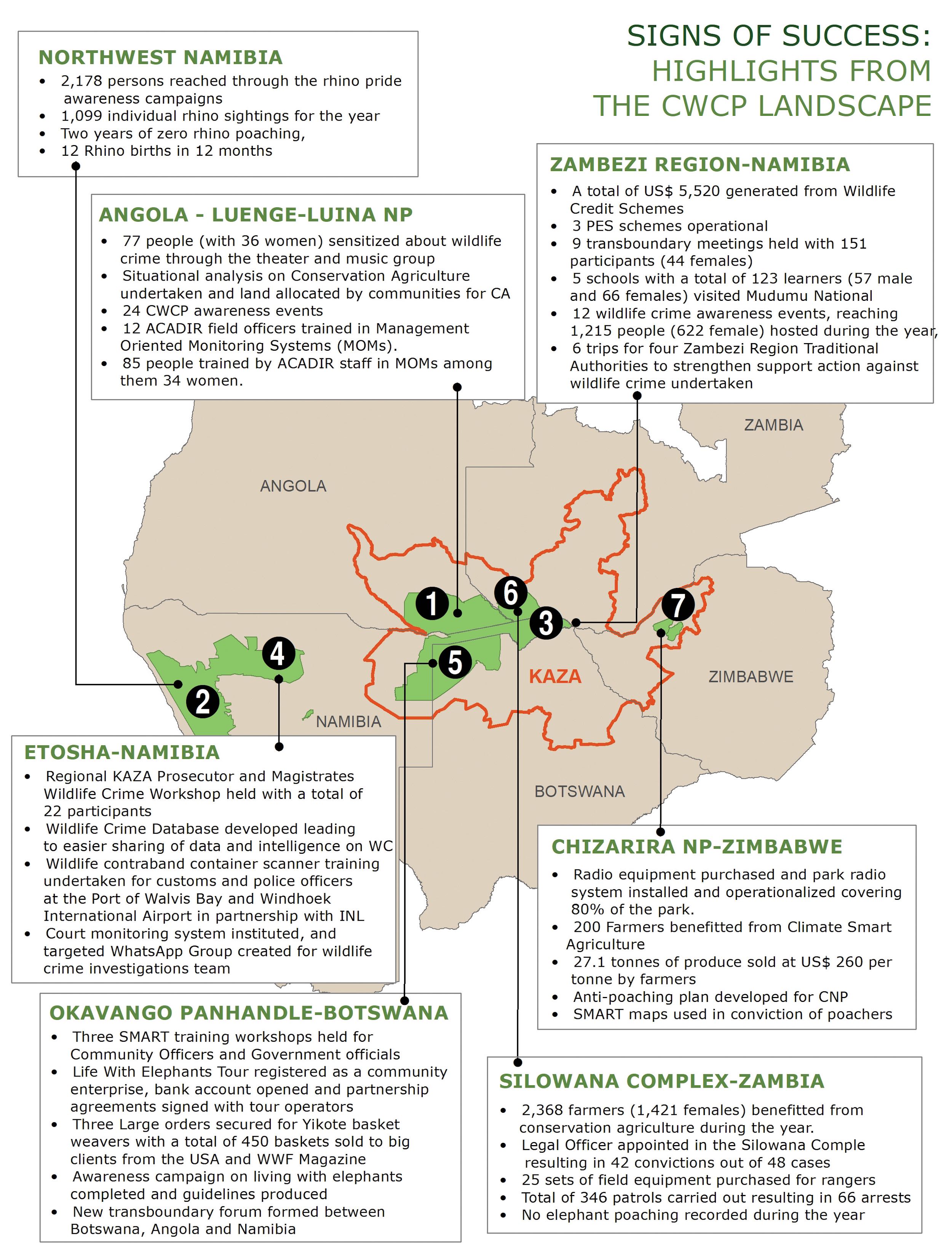
Strengthened investigations and prosecution
Even after poachers are arrested they can still pose a threat to our wildlife if they are not convicted and sentenced according to the severity of their crime. Stiff fines and meaningful guidelines for sentencing for wildlife crimes are mandated by Namibia’s legal codes, but to be effective, they must be enforced by the courts and backed by equally strong penalties in our neighbouring countries. Consequently, thorough investigations leading to convictions in the courts are critical to ensuring not only that justice is done, but also to reinforce the message that the risks of committing wildlife crimes are not worth the rewards.
To that end, MEFT and its partners developed a wildlife crime database accessible to the Namibian police (NAMPOL) which helped to achieve a tipping point in intelligence-led investigations during the last year. Investigators from across the diverse law enforcement units who are fighting different aspects of wildlife crime no longer operate in “information silos”, but rather share information and act upon their collective intelligence. This has strengthened the collaborative investigation efforts to pre-empt poaching, and helped investigators identify and link criminal poaching and trafficking networks.
Since the programme’s inception more than 300 community game guards have received scene-of-crime training, 250 government rangers have been trained in matters related to law enforcement, and partner NGOs such as ACADIR, Ecoexist, IRDNC, NNF, SRT and WWF have used their reach in their respective areas to create awareness of wildlife crime among over 18,500 people in the five KAZA countries; 95% of those reached come from communities in areas which are affected by poaching.
In the courts the Prosecutor General established an Environmental Crimes Unit (ECU) consisting of 43 prosecutors. With support from MEFT and the Rooikat Trust, a court monitor maintains an up-to-date register of most of the pending wildlife crime cases and sends weekly reminders of pending cases to MEFT and NAMPOL investigators. Furthermore, the Legal Assistance Centre, TRAFFIC and the KAZA Secretariat organised national and regional workshops to increase awareness about the seriousness of wildlife crime and unlock high-level support within the prosecutorial and judicial sectors in the five KAZA countries.
This is a small sample of key results achieved by the CWCP partners in the project’s second year of operation. Along with creating tangible wildlife-related benefits for communities, progress in conservation agriculture and the establishment of Transboundary Forums, combatting wildlife crime is an important part of protecting critically endangered black rhinos and allowing elephants across the region to thrive. Once the criminal syndicates can no longer steal our natural resources, our communities and countries can truly realise the benefits of living with wildlife now and for generations to come.
For articles on similar topics, please click one of the following options:
